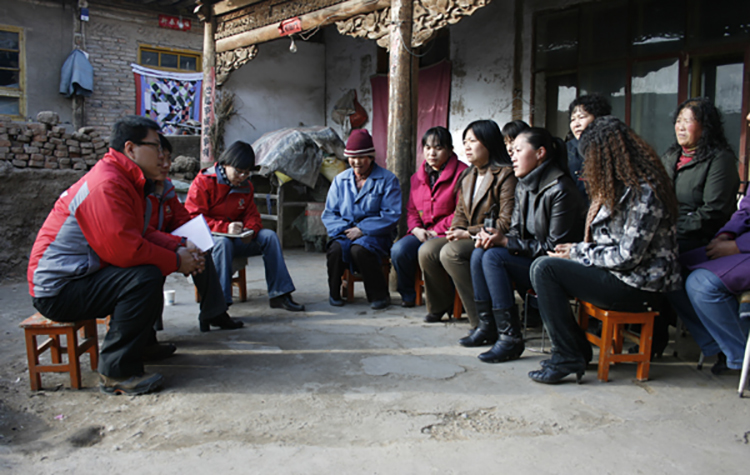On 29 January, the Chinese government targeted for closure a renowned women’s legal aid center in Beijing. Not only does this action undermine the government’s own efforts to advance women’s rights and gender equality, it runs in direct opposition to the government’s stated priorities and its international obligations. The Women Human Rights Defenders International Coalition (WHRDIC) denounces these efforts to curb space for civil society, and urges respect for those who do the critical work of defending human rights and accountability when they face reprisals.
The Beijing Zhongze Women’s Legal Counseling and Service Centre (the Centre) was a widely acclaimed civil society organization, both nationally and internationally, which made significant contributions to the promotion and advancecement of women’s rights. Its staff and researchers conducted important work to improve rural women’s access to justice, to fight domestic violence and sexual harassment in the workplace, and remedy to women victims.
In 2007, the media outlet of the Chinese Ministry of Justice voted the Centre’s director, Guo Jianmei, one of the ‘top ten Annual Legal Persons of Note’ and in 2011, popular press outlet Nanfang Daily called the Centre one of China’s ‘top public service organizations’. In 2014, it collaborated with Chinese Women’s University and other established organizations to submit reports ahead of the periodic review of China by the Committee on the Elimination of Discrimination against Women (CEDAW).
The WHRDIC is concerned at escalating threats for women human rights defenders, and the wider civil society in China. The forced closure of the Centre comes at a time of unprecedented hardship for those calling for more respect for human rights in the country, whether lawyers, bloggers, NGO workers, religious practitioners, or even ordinary citizens.
The Centre – which is in its second iteration, after the shutdown of its predecessor at Peking University – is also a direct legacy of the 1995 UN World Conference on Women. Attacking that legacy seems a counter-narrative to the Chinese government’s celebrations in September 2015 of the 20th anniversary of the conference. Co-hosted by UN Women, these festivities included an opening statement by President Xi Jinping where he urged the international community to make ‘greater efforts to promote gender equality’ and pledged that China would ‘enhance gender equality as basic state policy’.
By shutting down the Zhongze Centre the Chinese government, rather than promoting the status of women, implementing the Beijing Platform of Action, or even meeting minimum obligations to implement recommendations from UN experts on women’s rights, has acted in contradiction to its own laws and policies, and its international human rights obligations.
The other issue we would suggest mentioning is the policy environment. The recent national security law and the draft charity and foreign NGO management laws (under review) have deeply affected the way civil society operates because of the restrictions they impose, their vague definitions, and the questions linked to their implementation. This is concerning to the human rights movement (and other sectors) and is part of the government’s attempt to provide more obstacles to curtail activities among civil society actors.
The WHRDIC reiterates its call for the government to halt its harassment of human rights defenders and to facilitate an enabling environment for women defenders and civil society. The WHRDIC also urges the government of China to fully respect the right of individuals and organizations to engage with the UN mechanisms, and to refrain from and promptly investigate any reprisals against those who do. As the WHRDIC, we recognize the committed work of inspiring Chinese WHRDs, and are in solidarity with them at a time arbitrary restrictions are put forward by the Chinese government to curb their legitimate human rights work.




